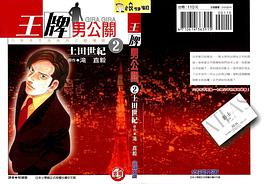

具体描述
The President and CEO of Intel, the world's largest chipmaker, reveals how to identify and exploit the key moments of change in any industry that generates either drastic failure or incredible success. Under Andrew Grove's leadership, Intel has become the world's largest computer chipmaker, the 5th most admired company in America, and the 7th most profitable company among the Fortune 500. Few CEOs can claim this level of success. Grove attributes much of it to the philosophy and strategy he has learned the hard way as he steered Intel through a series of potential major disasters. There are moments in any business when massive change occurs, when all the rules of business shift fast, furiously and forever. Grove calls such moments strategic inflection points (SIPs), and he has lived through several. They can be set off by almost anything - by mega competition, an arcane change in regulations, or by a seemingly modest change in technology. They are not always easy to spot - but you can't hide from them. Intel's first SIP was when the Japanese started producing better-quality, lower-cost memory chips. It took Grove three years and huge losses to recognize that he had to rethink and reposition the company to become, once again, leader in its field.Grove extrapolates the lessons he has learned from this and other SIPs - for instance the drama of the Pentium flaw, and the SIP brought on by the Internet - to reveal a unique insight into the management of change. He recounts strategies from other companies and examines his own record of success and failure. Only the Paranoid Survive is a classic lesson in leadership skills that every manager in every industry will benefit from. Every manager must assume that something will change - very soon.
作者简介
Andrew S. Grove emigrated to the United States from Hungary in 1956. He participated in the founding of Intel, and became its president in 1979 and chief executive officer in 1987. He was chosen as Time magazine's Man of the Year in 1997. In 1998, he stepped down as CEO of Intel, but continues as chairman of the board. Grove also teaches a course in strategy at the Stanford University Graduate School of Business, and is the author of three previous books, including the bestselling High Output Management. He lives in the San Francisco Bay Area.
目录信息
读后感
初看这本书的时候被这个题目忽悠了,读来的感觉和预想的完全不同,但是读罢后依然收获不少,遂对于中信这次“标题党”的行为姑且忘记吧...... “只有偏执狂才能生存”在我看来是对企业管理在面对重大变化如何将人的主观能动性发挥出来,以迅速感知和把握战略转折...
评分(此段介绍标题含义)由于饱受了中国当代的优秀的、科学的、系统的、漫长的教育的熏染,对读后感和观后感这些东西存在意识上的不统一,但又找不到和其相反的称谓,所以暂且叫做预测感,本来觉得期望感比较好,但推敲后觉得与我的处世的原则不相符合-"不要对任何的事情抱有期...
评分《只有偏执狂才能生存》(一下以“偏执”来替代)一书听起来就像是某个大牛的布道式自传,要告诉你需要怎么偏执才能生存,自己又是怎么通过偏执成功的,其实,真正讲的是与战略转折点到来时,企业的应对之道。就像书上封面上写的那样:“战略转折点来的时候,如果你不想被摧毁...
评分《只有偏执狂才能生存》(一下以“偏执”来替代)一书听起来就像是某个大牛的布道式自传,要告诉你需要怎么偏执才能生存,自己又是怎么通过偏执成功的,其实,真正讲的是与战略转折点到来时,企业的应对之道。就像书上封面上写的那样:“战略转折点来的时候,如果你不想被摧毁...
评分断断续续的读了大概一个月(真不敢相信一本200页的书居然读了一个月),感觉这本书并不像老罗说的那么好,可能是自己的水平层次不够吧. 印象比较深的几个概念"10倍速....""适应变化"..... 总而言之就是企业要适应变化,但是又不能被变化迷惑. 有时间还需要再读~~
用户评价
开读。20190306 读完20190329
评分开读。20190306 读完20190329
评分开读。20190306 读完20190329
评分开读。20190306 读完20190329
评分开读。20190306 读完20190329
相关图书
本站所有内容均为互联网搜索引擎提供的公开搜索信息,本站不存储任何数据与内容,任何内容与数据均与本站无关,如有需要请联系相关搜索引擎包括但不限于百度,google,bing,sogou 等
© 2026 book.quotespace.org All Rights Reserved. 小美书屋 版权所有




















